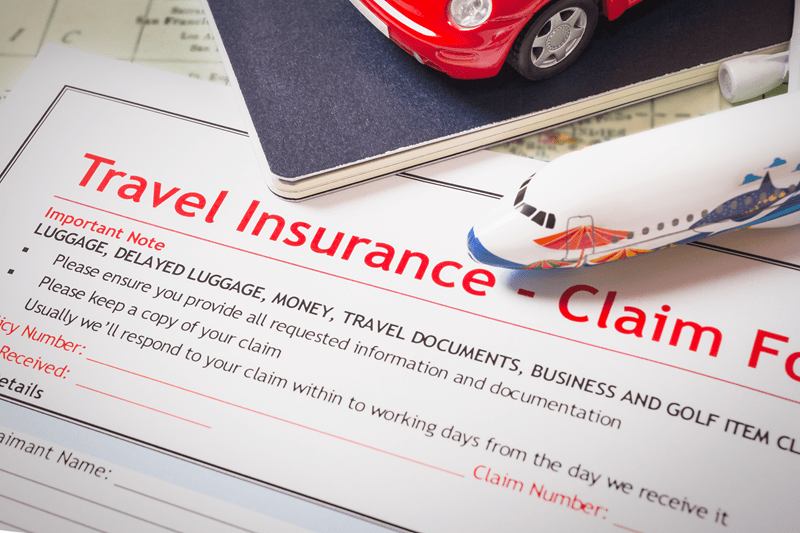
Traveling-whether across the U.S. or around the world-is one of life's greatest pleasures, but it also entails some degree of uncertainty. Flights get delayed, bags get lost, emergencies can pop up, and sometimes plans change at the last minute. That is why travel insurance has become an essential part of trip planning for American travelers today.
Below is a comprehensive guide explaining how travel insurance works, why it's important, and what tangible benefits it truly provides both prior to and during one's trip. This serves as your all-inclusive travel protection guide for safe and hassle-free travels, from the trip cancellation basics to emergency medical coverage, lost luggage insurance, and practical advice on making travel claims.
Everything from weather events to airline staffing shortages, not to mention public health disruptions, has happened within the last few years and has disrupted the plans of travelers. For this reason, travel insurance is no longer optional.
Insurance provides valuable financial protection against common and unforeseen setbacks. Many travelers assume that they have protection through credit card benefits or airline policies; these protections are usually limited, however, and may not apply in many circumstances.
A dedicated travel protection guide, just like the one you're reading, helps you understand exactly what professional insurance offers and why it is such an important tool for anyone planning a trip.
One of the most valuable components of travel insurance includes coverage for canceled trips. The basics of trip cancellation involve reimbursement to you for prepaid, non-refundable expenses if you must cancel for a covered reason.
Here are some common reasons that may be covered:
For U.S. travelers, who quite often pay in advance for flights, hotels, cruises, and tours many months in advance, these fundamentals of trip cancellations are very important. Without insurance, a last-minute cancellation could mean the loss of hundreds or thousands of dollars.
Modern policies also include CFAR upgrades that provide partial reimbursement, even when the cancellation is outside of the standard guidelines. Not all plans include it, but this is one of those valuable enhancements for travellers desiring maximum flexibility.
Every time you compare plans, going back to the trip cancellation basics of each policy ensures you are picking out a policy that really fits your travel style and risk tolerance.
If there's one part of travel insurance every traveler should pay attention to, it's emergency medical coverage. Many Americans make the mistake of thinking their domestic health insurance works globally - in most cases, that's simply not true. Take Medicare, for example, which offers virtually no benefits outside the U.S.
Emergency medical coverage pays for urgent medical treatment, hospital stays, ambulance services, and physician visits in case there is an accident or sudden illness during the middle of your trip. This could be a lifesaver-both literally and financially-since medical care abroad can be very expensive.
The average U.S. traveler may not realize that:
That's why, in most insurance plans, emergency medical coverage is one of the strongest safety nets you can bring with you. At any time, an accident or a food reaction, or some other unexpected illness can occur, even to a healthy traveler.
A good travel protection guide always stresses the importance of emergency medical coverage, and this is no exception, continuing as it does to be one of the top reasons Americans purchase travel insurance today.

Baggage mishandling by airlines is more common than most travelers may think. Bags can get delayed, damaged, or lost altogether, leaving you without clothes or personal items for days or, worse still, permanently.
That's where lost luggage insurance comes in. Many travel insurance plans cover this benefit and help reimburse you for personal belongings lost, stolen, or damaged on your trip.
A strong policy may include:
Besides coverage for complete loss, many policies offer luggage delay benefits, too, which reimburse you for essential purchases should your bags be temporarily delayed.
If you have ever arrived for a vacation only to find that your suitcase did not, you already understand the value of lost luggage insurance. When comparing policies, always check how much coverage is offered, how claims are evaluated, and what documentation you'll need.
Lost luggage insurance is one of the most practical ways to safeguard an investment in a trip and one's peace of mind while traveling.
A good travel protection guide can help you understand not just what travel insurance covers but also how to choose the right policy. Consider these factors when you review your options:
A well-rounded travel protection guide also reminds travelers that cheaper is not always better. The goal is to select a policy that matches your needs, not just the lowest-priced option.
Even the best coverage is of little good if a person does not know how to use their policy. Most travelers have no idea how to properly take the necessary steps to submit a claim. Because of this, delays or denials can often occur. Clear travel claim advice is therefore an integral part of any travel insurance overview.
Here are helpful guidelines:
Those tourists who bother to learn how claims are processed are thus setting themselves up for fair reimbursement on time whenever anything goes wrong.
Whether it is a weekend getaway or a multi-country international vacation, travel insurance can provide peace of mind and financial protection in case of unpredictable events. A reliable travel protection guide on how to choose proper coverage comes in handy.
Today's travel environment is full of uncertainties, and such protection can turn stressful interruptions into manageable inconveniences. Knowing how travel insurance works, what is covered, and how to use it efficiently will provide you with the power to travel more smartly and confidently.
This content was created by AI